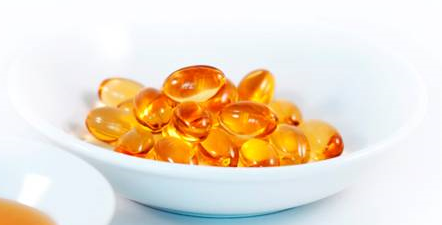If you’re like most people you probably assume antioxidants are just something you consume to help your immune system fight sickness. Although this is true antioxidants are so much more than that! By definition an antioxidant (noun) is a substance such as vitamin C, E [or A] that removes potentially damaging oxidizing agents in a living organism (oxforddictionaries.com). It is easy to understand then how beneficial antioxidants can be for your skin!
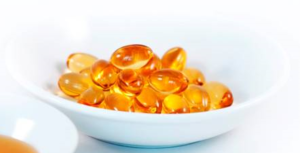 Day by day our skin is introduced to different types of bacteria and free radicals. We all know what bacteria is, but what are free radicals? A Free Radical (noun) refers to an especially reactive atom or group of atoms that has one or more unpaired electrons; especially one that is produced in the body by natural biological processes or introduced from an outside source (as tobacco smoke, toxins, or pollutants) and that can damage cells, proteins, and DNA by altering their chemical structure (merriam-webster.com). Bacteria and free radicals damage the skin’s cells, which can drastically change the health and appearance of our epidermis. Most significantly it can speed up the aging process. That’s where antioxidants come into the picture! Antioxidants help fight off these bacteria and free radicals and can prevent or even reverse the damages that have been made.
Day by day our skin is introduced to different types of bacteria and free radicals. We all know what bacteria is, but what are free radicals? A Free Radical (noun) refers to an especially reactive atom or group of atoms that has one or more unpaired electrons; especially one that is produced in the body by natural biological processes or introduced from an outside source (as tobacco smoke, toxins, or pollutants) and that can damage cells, proteins, and DNA by altering their chemical structure (merriam-webster.com). Bacteria and free radicals damage the skin’s cells, which can drastically change the health and appearance of our epidermis. Most significantly it can speed up the aging process. That’s where antioxidants come into the picture! Antioxidants help fight off these bacteria and free radicals and can prevent or even reverse the damages that have been made.
Antioxidants are anti-inflammatory (making them great for acne), increase collagen production (which everyone needs), and minimize the appearance of wrinkles, fine lines and age spots! It’s safe to say, when used correctly, antioxidants are miracle workers! Now that we know a little more about antioxidants and what they do, let’s talk about how to use them and what sources of antioxidants are best for each skin concern.
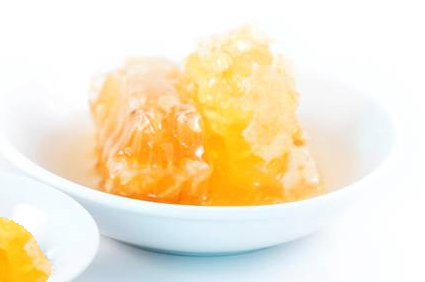 First things first, let’s talk raw honey. Raw honey contains a lot of antioxidants and has many skin and hair benefits, but there is a type of honey that trumps them all. Manuka honey is the most antioxidant rich honey you can find! What sets it apart is that it’s produced by bees that pollinate the manuka bush in New Zealand. The honey created from it contains hydrogen peroxide and about 100 times more antibacterial strength than your average raw honey. Its primary use as a skincare treatment is for moisture retention for those with dry skin. Even if you have acne, if you occasionally get flakey from over drying products, doing a manuka honey mask once every week or so is a great idea! Because of its antibacterial/anti-inflammatory properties it’s a sure way to help calm down breakouts and makes for the best acne treatment you can give yourself!
First things first, let’s talk raw honey. Raw honey contains a lot of antioxidants and has many skin and hair benefits, but there is a type of honey that trumps them all. Manuka honey is the most antioxidant rich honey you can find! What sets it apart is that it’s produced by bees that pollinate the manuka bush in New Zealand. The honey created from it contains hydrogen peroxide and about 100 times more antibacterial strength than your average raw honey. Its primary use as a skincare treatment is for moisture retention for those with dry skin. Even if you have acne, if you occasionally get flakey from over drying products, doing a manuka honey mask once every week or so is a great idea! Because of its antibacterial/anti-inflammatory properties it’s a sure way to help calm down breakouts and makes for the best acne treatment you can give yourself!
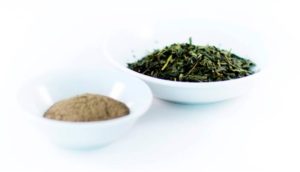 Another popular substance that is well known to be antioxidant rich is green tea! Of course drinking green tea has a lot of benefits on its own, but did you know using it topically can increase your collagen production and help reduce the aging process? Unlike other antioxidant rich substances, green tea extracts contain polyphenols, or specifically catechins, that stimulate microcirculation in the skin, creating a more even, healthy looking skin tone. They’ve also been known to reduce sun damage and help protect skin from future damage, which makes them great for everyone whether they want to heal or prevent future damage and wrinkles. A good way to apply it is to include it in hydrating masks or in your homecare facial treatment by adding some to your moisturizer at night! You can even use it after you’ve been in the sun all day. Since it’s an anti-inflammatory it’ll calm irritations or redness.
Another popular substance that is well known to be antioxidant rich is green tea! Of course drinking green tea has a lot of benefits on its own, but did you know using it topically can increase your collagen production and help reduce the aging process? Unlike other antioxidant rich substances, green tea extracts contain polyphenols, or specifically catechins, that stimulate microcirculation in the skin, creating a more even, healthy looking skin tone. They’ve also been known to reduce sun damage and help protect skin from future damage, which makes them great for everyone whether they want to heal or prevent future damage and wrinkles. A good way to apply it is to include it in hydrating masks or in your homecare facial treatment by adding some to your moisturizer at night! You can even use it after you’ve been in the sun all day. Since it’s an anti-inflammatory it’ll calm irritations or redness.
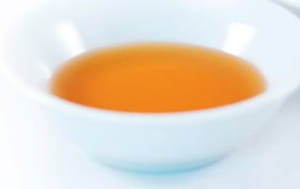 Lastly, there’s vitamin A, a very important vitamin commonly known to be found in retinoids and retinals. In the professional world retinoids are used to prep skin for chemical peels and microdermabrasion facials. Vitamin A is one of the more active forms of antioxidants that you can use. It’s mainly for acneic or aging skin. Although some may believe that those are almost opposing skin concerns, they both require the same type of attention that vitamin A can provide. When vitamin A is used topically in the form of a retinoid or retinal it creates a controlled irritation to force the damaged skin cells to slough off so that new cells can be produced. Both acne sufferers and those concerned with aging need that extra boost to increase their cell turnover rate, produce more collagen and get rid of old, damaged cells. Vitamin A as a whole encourages skin cell and collagen production. It is best to use these types of products at night because your cell turnover rate increases while you sleep. Also, unlike other antioxidant rich substances, retinoid forms of vitamin A can increase your chances of sun damage, so it is best to always wear a sunscreen with zinc or high SPF when using such products.
Lastly, there’s vitamin A, a very important vitamin commonly known to be found in retinoids and retinals. In the professional world retinoids are used to prep skin for chemical peels and microdermabrasion facials. Vitamin A is one of the more active forms of antioxidants that you can use. It’s mainly for acneic or aging skin. Although some may believe that those are almost opposing skin concerns, they both require the same type of attention that vitamin A can provide. When vitamin A is used topically in the form of a retinoid or retinal it creates a controlled irritation to force the damaged skin cells to slough off so that new cells can be produced. Both acne sufferers and those concerned with aging need that extra boost to increase their cell turnover rate, produce more collagen and get rid of old, damaged cells. Vitamin A as a whole encourages skin cell and collagen production. It is best to use these types of products at night because your cell turnover rate increases while you sleep. Also, unlike other antioxidant rich substances, retinoid forms of vitamin A can increase your chances of sun damage, so it is best to always wear a sunscreen with zinc or high SPF when using such products.
Did You Know?
You don’t sneeze when you are asleep because the nerves involved in the sneeze reflex are also resting!
Leave a Comment
You must be logged in to post a comment.


